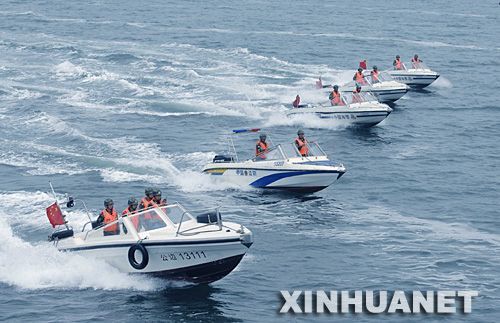By Han Xudong, professor with National Defense University PLA China
The Supreme People's Court (SPC) on August 2 issued a regulation on the judicial interpretation to clarify China's jurisdiction over its territorial seas, which provides a clear legal basis for Beijing to protect the maritime order, marine safety and interests, and to exercise integrated management over the country's jurisdictional seas. The regulation is of great significance.

The judicial explanation is based on Chinese law, the UN Convention on the Law of the Sea and judicial practices. According to the regulation, jurisdictional seas not only include inland waters and territorial seas, but also cover regions including contiguous zones, exclusive economic zones and continental shelves.
China is a nation of vast maritime and land territory. The jurisdictional maritime territory claimed by China accounted for more than 3 million square kilometers, about one third the area of its land territory.
Since the survival and development of human beings have moved towards the ocean, it is necessary for China to develop into a maritime power. Land had been the traditional survival and development space for the country.
For a long time, China has not paid enough attention to the ocean, which caused some of its islands and sea areas to be encroached by others. The Chinese government has adopted measures to strengthen education on awareness of maritime territory since 2000, but there's still a long way to go.
Foreign-related civil cases on maritime issues have been increasing. China faces new challenges, such as illegal fishing. Beijing should enact laws to maintain its sovereignty, rights and interests. The regulation is beneficial to boost law enforcement efforts and dealing with maritime issues, while upgrading China's legal system.
As the ocean plays a more significant role in a country's development, someone even said that the 21st century is the century of the ocean. Hence, conflicts on maritime issues have risen.
As for China, there are hundreds of wells that have been illegally mining for oil in China's South China Sea, which violated China's interests and infringed on its maritime order. The regulation would maintain China's maritime order, which is beneficial for further exploitation.
China's maritime safety does not seem optimistic due to the turbulent Asia-Pacific situation. The Chinese army maintains the principle of "don’t provoke troubles, don't be afraid of troubles", and will fight against military threats. And China will handle non-military threats towards maritime interests according to the regulation and relevant laws.
The South China Sea "arbitration" farce proposed by the Philippines has ended, but it reflects how Beijing continues to confront fierce international maritime disputes.
Someone who has ulterior motives will keep stirring up troubles in the South China Sea. The regulation will help China take control of the initiative over its international maritime rights.
( The opinions expressed here do not necessarily reflect the opinions of Panview or CCTV.com. )

Panview offers an alternative angle on China and the rest of the world through the analyses and opinions of experts. We also welcome outside submissions, so feel free to send in your own editorials to "globalopinion@vip.cntv.cn" for consideration.















